Nigel Farage reacts to poll putting Reform UK in the lead - …
GBN
Wales has voted Labour in every General Election since 1922 but ‘Farage’s silent majority’ are waking up, commentators say
Don't Miss
Most Read
Trending on GB News
Reform would win a landslide in Wales and decimate Labour’s 114-year dominance of the Celtic nation if an election was held tomorrow, a sophisticated poll mapping model has shown.
A ‘mega poll’ conducted by respected pollsters Electoral Calculus last week found Nigel Farage’s party would win 23 of 32 seats in Wales, usurping Labour as the biggest party by a country mile.
Keir Starmer’s party would lose 23 of its 27 seats (85 per cent of its representation) in a catastrophic and totally unprecedented wipeout.
Despite a century of effort from opposition parties, the Welsh public’s support of Labour has never wavered, duly electing anyone with a red rosette for 28 consecutive General Elections.
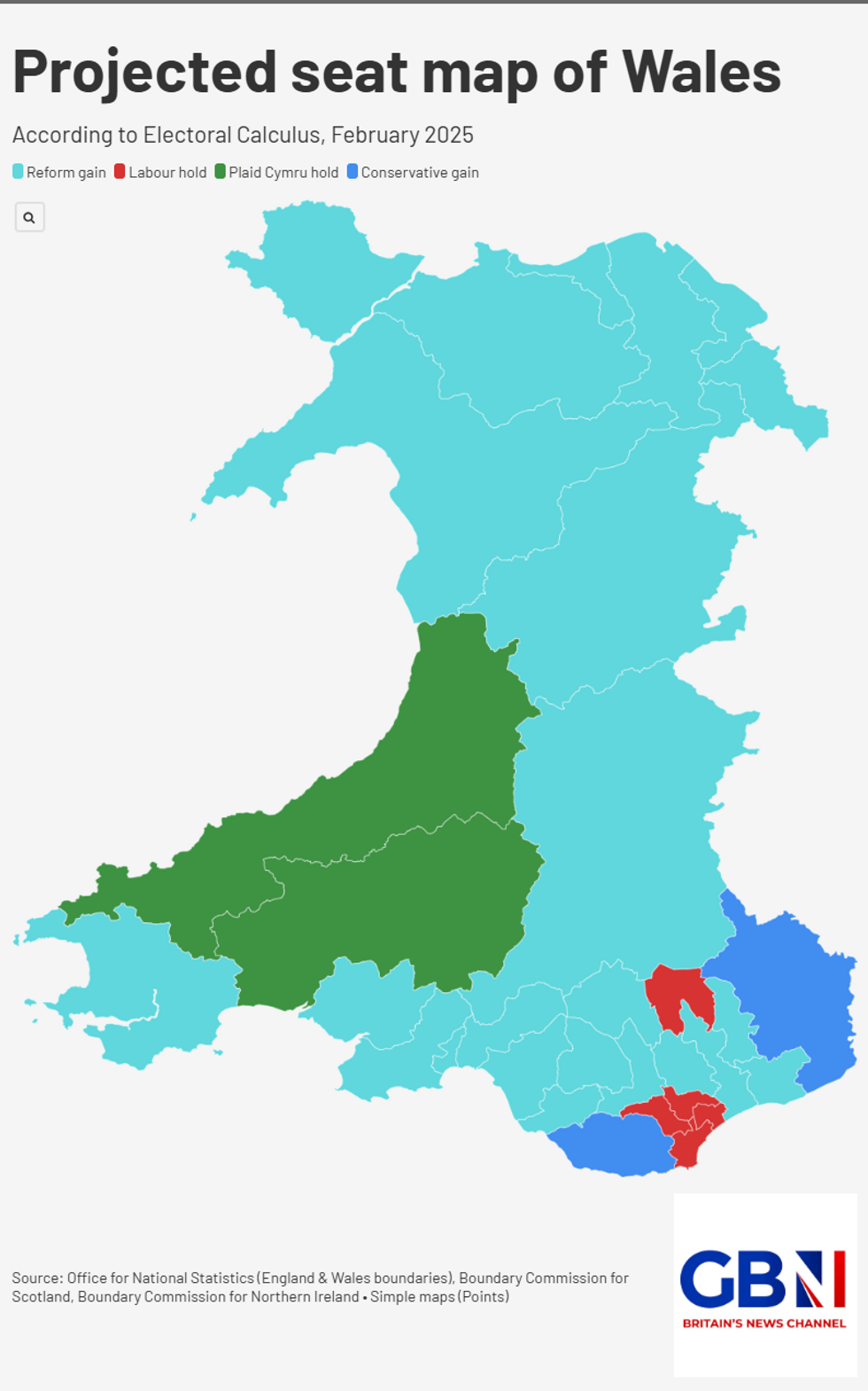
Projected seat map of Wales, Electoral Calculus February 2025
GBN
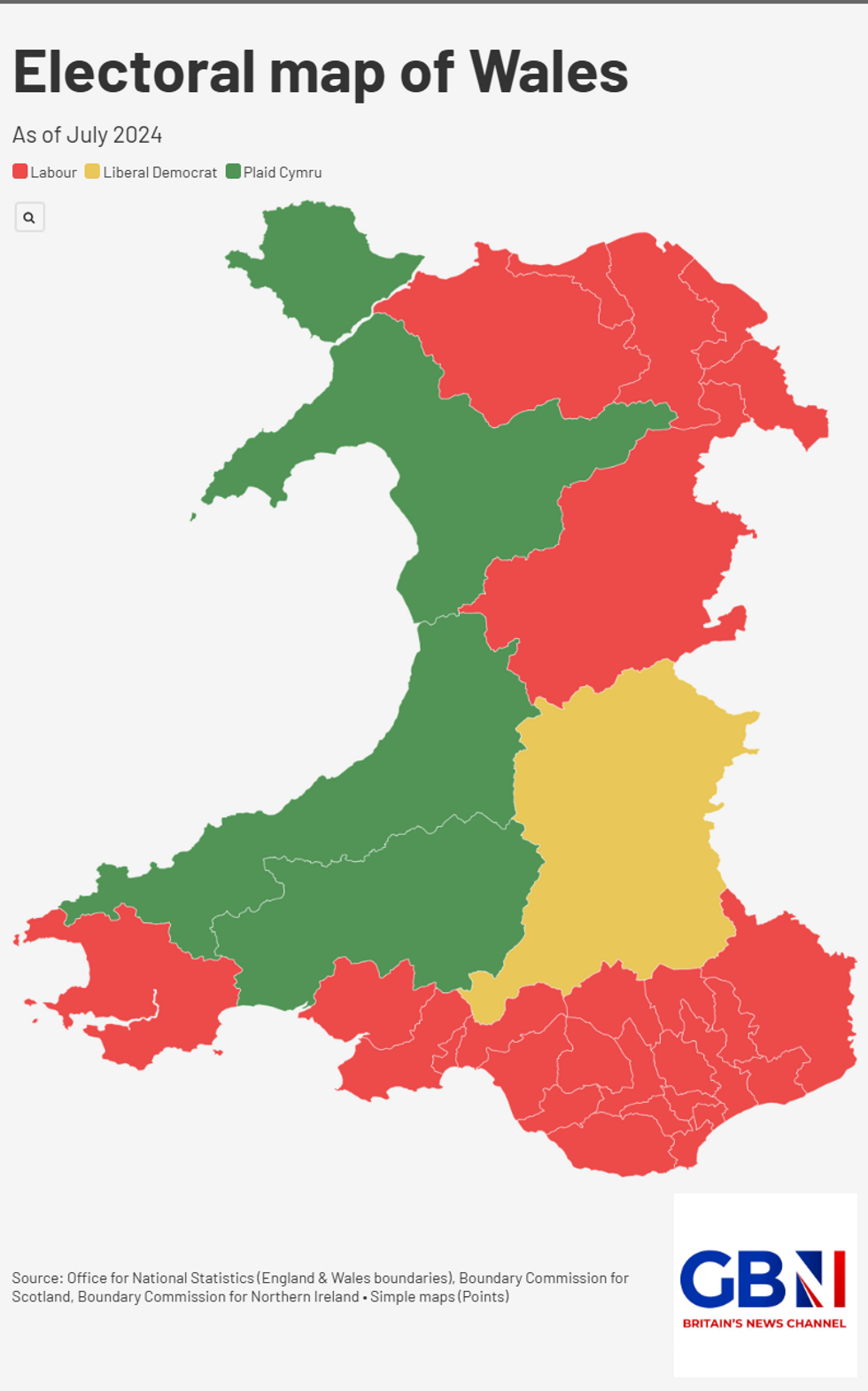
Current electoral map of Wales
GBN
Even in 2019 when Boris detonated the ‘red wall’, Labour’s grip over Wales and the former industrial valleys barely faltered.
But Electoral Calculus’ research shows even 'deep Labour’ areas like the valleys are abandoning the habit of several lifetimes and flipping to Reform.
Aberafan Maesteg, where Labour’s Stephen Kinnock triumphed in July by 10,354 votes, would fall to Reform, as would Pontypridd, where Labour’s Alex Davies-Jones cruised to victory by 8,402 votes.
Even Plaid Cymru, the left wing, Welsh nationalist party who are dominant in west and north Wales, face losing out to Reform.
Dwyfor Meirionnydd and Ynys Môn, two of their four seats, would fall to Farage. This despite Liz Saville Roberts winning a 15,876-vote majority in the former constituency last July.
The only seats Labour would hold onto are the four Cardiff seats and Blaenau Gwent and Rhymney.
The Conservatives, who were wiped out completely in July, would regain two seats- Monmouthshire and the Vale of Glamorgan. The Liberal Democrats would lose their only seat of Brecon, Radnor and Cwm Tawe to Reform.
GB News has analysed the last 30 General Election in Wales and can reveal the closest a party has come to toppling Labour in Wales was Thatcher’s landslide in 1983.
Labour won 20 Welsh seats that year, six more than the second place Tories on 14.
Apart from Boris Johnson’s 2019 victory when the Conservatives matched Thatcher’s seat haul, Labour has enjoyed long periods of total ascendancy.
This included Tory glory years in the 1950’s when Eden and Macmillan swept to power taking much of the country with them, but not Wales.
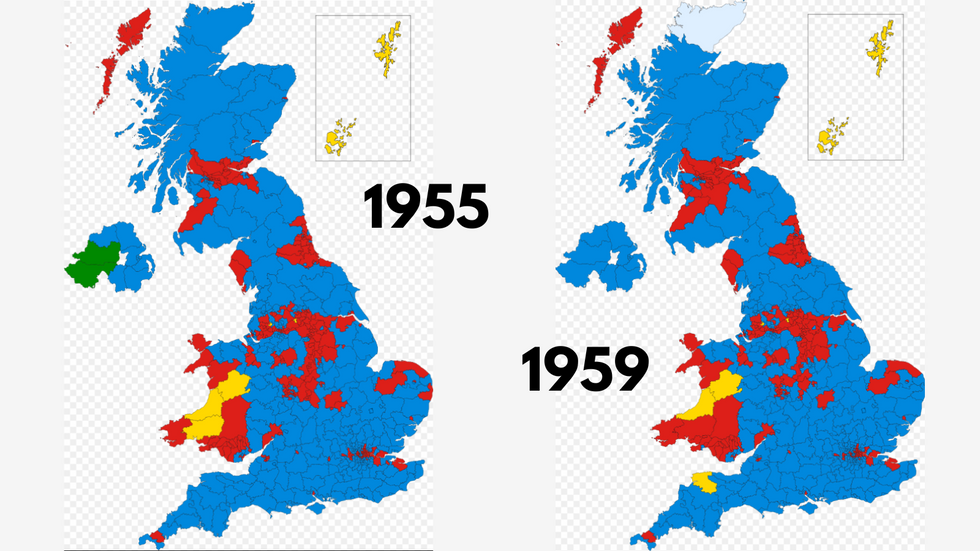
Even in the Tory landslides in the 1950's Wales voted Labour
GBN
While a General Election is still a very distant prospect, elections for Wales’ parliament the Senedd are due in 15 months, and this acts as a strong marker of opinion.
It may even get worse for Labour as the party changed the rules for the next election to a fully proportional voting system.
This negates Reform’s main electoral weakness of not having concentrated enough support to win First Past The Post (FPTP) contests as employed in Westminster elections.
With the Senedd expanding from 60 to 96 members, Reform could scoop anywhere between 15 and 50 seats.
As no party is likely to win an outright majority in a fully proportional Senedd election, Reform would instantly become a major player in government, capable of blocking legislation and exerting real influence.
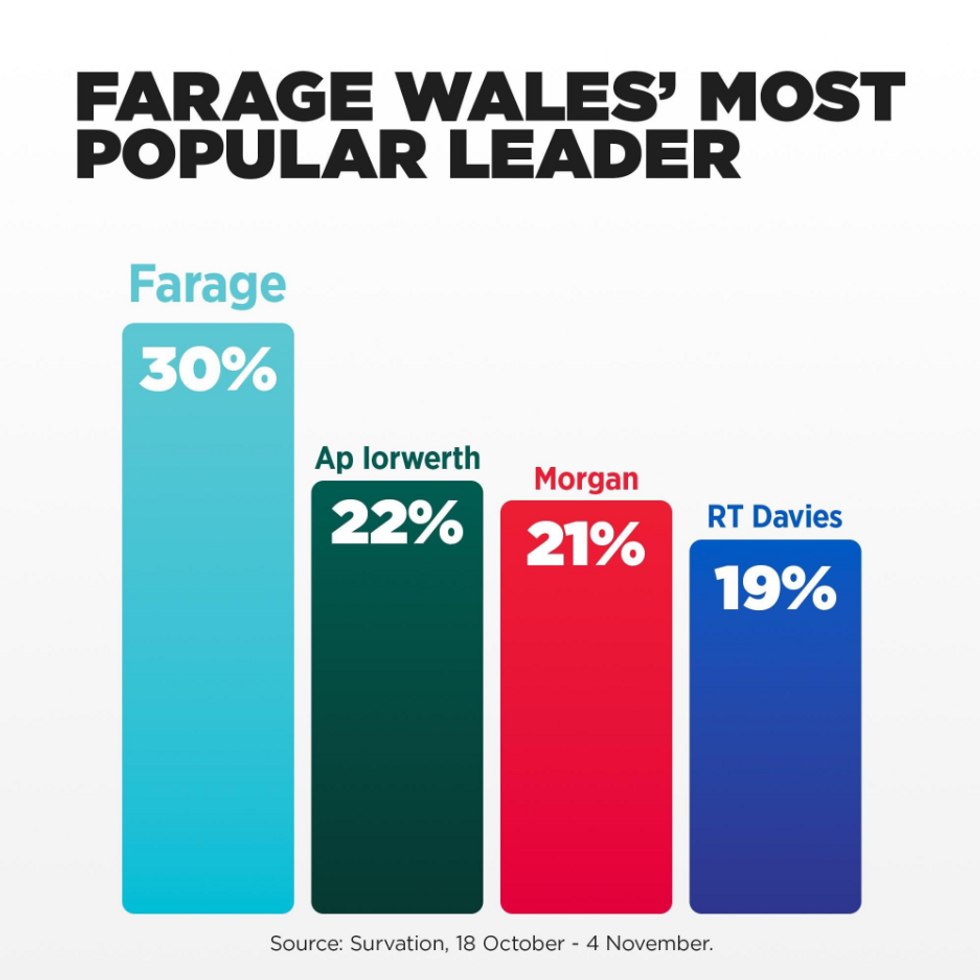 Poll finds Farage is the most popular leader in WalesReform
Poll finds Farage is the most popular leader in WalesReformWhy has Reform become so dominant?
Commentators have pinned much of Reform’s rise on the fact that over the last 15 years Labour has been able to blame much of their failings on a ‘lack of funding’ from Westminster.
But with Starmer installed in Number 10, that excuse has gone, and at the same time a new problem has arisen.
Labour’s popularity has crashed to record levels and Welsh Labour, once viewed as heroic for its different, extra cautious approach to Covid, is being tainted with the same brush.
Voters have also taken issue with the Labour-run Welsh NHS where waiting lists are worse than England.
Plaid Cymru leader Rhun ap Iorwerth has gone so far as calling the May Senedd elections a ‘referendum on Labour mismanagement of health’.
Educational outcomes in Wales have also lagged behind the other home nations, even when comparing similarly deprived areas of England.
There has also been widespread fury over Labour’s decision to lower the speed limit to 20mph while championing wind farms and solar parks to help Wales achieve net zero.
A proud agricultural nation, Wales’ rural folk also feel let down by Labour’s inheritance tax raid that is set cripple some Welsh farms at a time of unprecedented pressure in the industry and a mental health crisis.
LATEST FROM MEMBERSHIP:
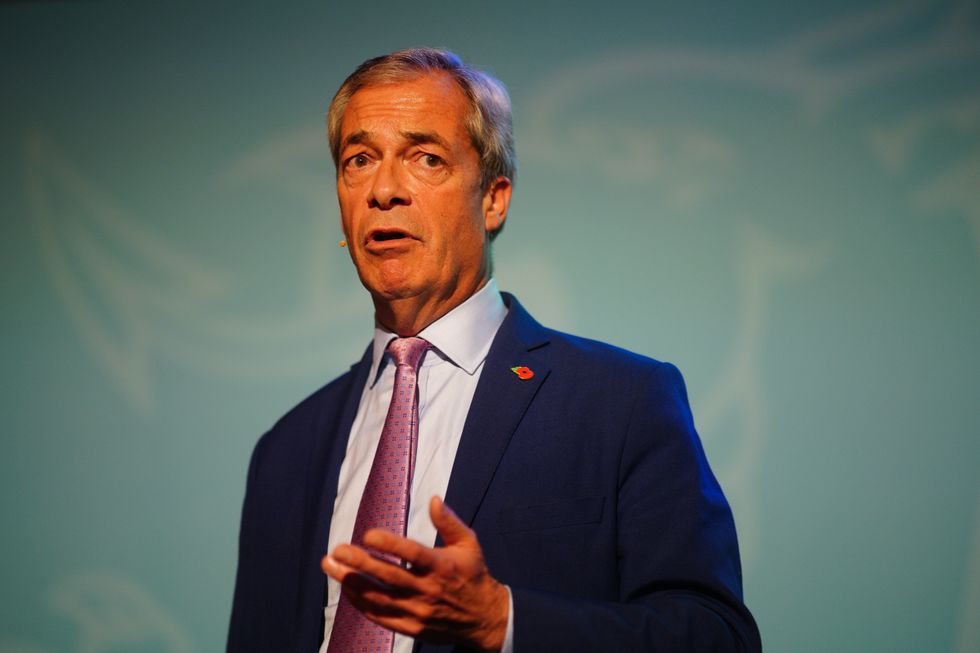
Nigel Farage addressed Reform members at its Wales party conference in November 2024
PAAll of these factors have left Reform smelling an opportunity. Nigel Farage has already said Wales will be his ‘number one priority’ in 2026.
However, Reform has also announced they will not name a leader before the election, a decision that has drawn criticism from commentators as it asks people to vote for a party without knowing who lead the nation if it won.
A Reform UK Spokesman said: "Reform UK has all the momentum in British politics. We have already won seats under FPTP and with the roll out of our branch structure, we will be in a position to win many more.
"In Wales we are building towards 2026 and the sky's the limit to what we can achieve in the Senedd election.
"Reform are the future of British politics."
Kevin Craig, CEO and Founder of PLMR who conducted the poll in partnership with Electoral Calculus, said: “Of course, there is a long, long way to go until the next election.
“History is littered with British Governments who were unpopular in the initial years and who then turned it around. Labour knows very well what it needs to deliver in order to win again.
“This poll shows multiple challenges for the two established parties as Reform UK continues to show momentum and is picking up support from disillusioned Labour and Conservative voters in economically struggling areas.
“A three-way split of the vote is practically unheard of in British politics and points to shifts in the political make-up of the United Kingdom. The Conservative Party will be particularly concerned that they are not able to move ahead of Labour in the polls as the official Opposition.
“If the Labour Government succeeds in its mission to grow the economy and inject optimism into the economic fortunes of households, I have no doubt they can turn things around – especially if the vote on the right remains so divided.”







